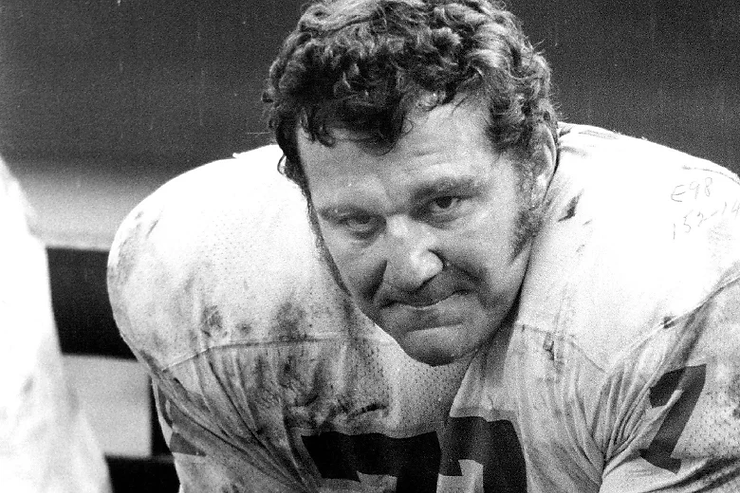By: Audrey Wang
Jim Tyrer died in the early morning hours of September 15, 1980. While three of his four children slept peacefully in their suburban home in Kansas, Tyrer shot his wife, Martha, and proceeded to commit suicide with the same weapon. He left the remainder of his family upset and confused about his death. Here are Tyrer’s children’s thoughts years later.
Tyrer was a standout offensive tackle in football at Ohio State. In addition to playing for Ohio State, he also played for the AFL and the Dallas Texans/Kansas City Chiefs from 1961 to 1973.
He also spent one season with Washington before retiring after the 1974 season. Compared to his other eight teammates, Tyrer seemed like he was shoo-in to join the Pro Football Hall of Fame. But he fell short of the necessary votes in 1981, the only time his name was ever called up for a vote. A 19-year member of the Hall, Rick Gosselin, described Tyrer as “the most qualified candidate in the senior pool. There are hundreds of players in that pool and Tyrer is the only one that was a six-time, first team all-pro. If you are the best at what you do for six NFL seasons, you are a worthy Hall of Fame candidate. Beyond worthy, in fact.”
Stefanie, Tyrer’s youngest child, described his death, saying, “we all knew after this happened that something had not been right,” she said. “This wasn’t the man that we knew . . .. You feel like there should have been something you could have done or something you should have recognized. Even though I was 12 or 13, there’s still a little bit of guilt. Why didn’t we pick up on something, or why didn’t we know more? … He probably didn’t understand what was happening to him, either.”
The children recall Martha as an amazing mother who participated in all of their games, and Tyrer did the same. But like many athletes, Tyrer started struggling after his retirement from football. He was troubled financially during a time where professional athletes needed offseason jobs to get enough money.
The night before Tyrer died, Brad, the eldest of the Tyrers’ two boys was working out, when his dad came into his room. “My dad came in, probably around 9, and he basically had the conversation you have with your oldest son,” he said. “He had the conversation with me like he knew he was never going to see me again. At the time, it was just so out of context that I was kind of focused on something else. Looking back, I remember that conversation really well. He was saying: ‘You’ve been a good son, and I’m proud of you. You need to take care of your brothers and sisters.’ It was just out of the blue. I was like, ‘Okay, Dad.’ That was probably about a 20-minute talk but I know he already knew that he was going to do something.”
The youngest son, Jason, also thought something was wrong. The last afternoon his father spent with him seemed a little strange. His father usually wasn’t overly affectionate until that game. “He didn’t hug us a lot, but at that game he did. I got this kind of – it felt unusual, you know?”
Now, the children think they have a clue to why his father committed suicide. Tyrer was known by his teammates as having a huge head. Because of this, the teams Tyrer played for had to custom-fit a helmet for him. Football has always a certain risk of head trauma, CTE.
However, Tyrer was never diagnosed with CTE, and his autopsy notes indicate that he has “no intrinsic abnormalities”. The Tyrer’s eldest child, Tina Tyrer Moore, still holds on to one of her father’s old helmets. Tina said the padding “is not even a half-inch thick.” Although Tyrer may have never suffered from CTE, his children note that he constantly talked about ‘head pain’. But according to Brad, his father thought the headaches were due to the tight helmet.
With that information, the four children were able to have a better understanding of what happened in September. “I don’t think any of us think we’ve led remarkable lives in terms of what we went through,” Brad said. “I think we all just have lived life, the lives of our parents would have brought us up to live.”











